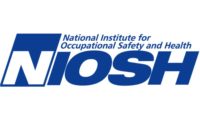Exoskeletons: Tomorrow’s ergonomic tools
A+A 2023 to feature demonstrations, symposium on industrial exoskeletons

Credit: Messe Düsseldorf/ctillmann
Implementing exoskeletons does not consist of one singular step. It is important to continuously stay in touch with the workers using them and checking in with their needs and possible suggestions for improvement.
The market for exoskeletons is growing. According to estimates published by market research institute Frost & Sullivan in 2021, the market for industrial exoskeletons will reach an average annual growth rate in excess of 40% over the coming years and reach a market volume of over $400M by 2025.
A diverse world of assistive solutions
The world of these physical assistants has become very versatile. Diverse pain points and risk zones are relieved or supported by exoskeletons and soft suits. They focus on the two most relevant body zones suffering from pain caused by physical work: back and shoulders. Lightweight textile structures such as those provided by Hunic, but also passive exoskeleton systems such as by Laevo, OttoBock, Innophys, ErgoSante, and Auxivo relieve the lumbar spine during a variety of jobs. When it comes to active systems also with possibilities for data interfaces one special provider standing out here is GermanBionics. The good news: the diversity of solutions makes for substantially better adaptability/suitability to the wide and varied jobs in the skilled trades, small and medium-sized companies and in major companies than only three years ago.
There are also various passive exoskeletons available care of OttoBock, Comau, Ergosante and Skelex for relieving the shoulders. There is a high need for solutions for workers whose work environment cannot be improved by either technical modifications or organisational changes. This is why there are also a number of manufacturers worldwide with products for thumbs, wrists and elbows applying well-established orthotic care principles. Bioservo supports hand strength since hands are the weakest link in the chain for a number of heavy-duty activities. Which exoskeletons do exist? How do they perform in studies? Where can I watch work being done with exoskeletons? Where can I try them out at workplaces? Where is the expert congress on this topic? You can experience all of this at A+A in a cooperation between Fraunhofer IPA and Stuttgart University IFF, WEARRA, the World Exoskeleton Association with A+A and the BASI Congress. In Hall 5 the “ExoPark” will be awaiting you: a large international joint stand manned by exoskeleton distributors. On an easily manageable space, these will allow you to familiarize yourselves with, and even personally try out, many different systems on realistic job tasks, which were jointly defined and realized by Fraunhofer IPA, Stuttgart University IFF and manufacturers.
Exoworkathlon® Study to watch
So far, a number of studies have succeeded in evidencing the local relief provided by exoskeletons in the target regions by measuring muscle activity and the forces acting upon it. In Exoworkathlon experiments the research team from Fraunhofer IPA and Stuttgart University were able to demonstrate that the subjective relief thanks to meaningfully applied commercial exoskeletons was stated to exceed 20% in over 80 tests. This subjective relief is also reflected by the objectively measured muscle activity parameters. These are 20% lower in the back when wearing an assistive system. The performance physiology study carried out by this team also reveals the significant circulatory relief experienced by over 50 welders using passive shoulder exoskeletons. Physical relief can have a positive impact on concentration, too. This was demonstrated by Hamburg-based researchers studying construction workers in 2021. This is great news because it allows to delay musculoskeletal disorders and to improve the quality of life for manual laborers. What’s more, this also makes workers more productive – which is relevant in view of the prospect of increasing skilled labor shortages. Add to this the fact that a large proportion of serious occupational accidents go hand in hand with declining concentration. This means exoskeletons also serve as prevention.
And there is another exciting piece of news: the quality of manually welded seams is improved by 10% with exoskeletons. This was proven in cooperation with the Welding Technology Test Centre Hamburg.
Right across from the ExoPark, the Exoworkathlon® Study by Fraunhofer IPA and Stuttgart University IFF will run live demos with young workers. At so-called parcours, realistically simulated workstations, exoskeletons supporting the upper extremities and lower back are tested for their impact on work performance, wearers’ acceptance, subjectively perceived relief as well as job desirability. Involving over 100 study subjects so far, this is one of the largest ongoing, prospective exoskeleton studies. A live demonstration of various parkours will be organized in Düsseldorf, simulating jobs involving heavy physical work, such as in logistics and assembly, with the help of young experts from the respective industries. Here, visitors can enter into dialogue and exchange and share their experiences with exoskeleton manufacturers, users and scientists.
What is going on in research? WearRAcon Europe Conference 2023 also held at A+A
What are the long-term consequences/benefits of exoskeletons? This is challenging to assess. Therefore, it would be all the more important to read, analyse and discuss the laboriously compiled, large studies by Ford USA and Toyota USA in Germany. But for some unknown reason this is not being done. Both companies proved that they were able to reduce health-related costs by using exoskeletons. Intensive research is being carried into new solutions that match the mix of perceived relief, wear comfort and everyday flexibility increasingly better. In 2023 the WearRAcon Europe Conference will be held in Düsseldorf during A+A rather than in Stuttgart in order to further deepen the cooperation between Fraunhofer IPA and A+A. This English technical conference for exoskeletons will run on 25 and 26 October – synchronised with the BASI Congress and the GfA Meeting. Over two days, experts and prominent end users from throughout Europe will shed some light on market needs, specifications, ergonomics and the fitness for use of exoskeletons. Many exoskeleton manufacturers will also present their systems in lectures here. The programme coordinated with the BASI Congress and the GfA Meeting allows interested visitors to acquire extensive expertise targeted at OSH experts, ergonomic specialists, workers and researchers.
Exoskeletons and secondary prevention
Can industrial exoskeletons also be used to mitigate existing back pain at work? As a matter of principle, the over one hundred systems available on the market are designed for use by healthy workers for so-called primary prevention. Some systems are even restricted to healthy persons, as explicitly indicated in their instructions. In Germany the principle “Rehabilitation before Pension” applies to workers of all ages. This is why the question reads whether in specific cases (always respect the TOP principle!) workers can profit from exoskeletons that reduce a local load.
As this is a new question, we organized a symposium entitled “Tomorrow’s Professional Rehabilitation” at Rehacare 2022 and discussed this topic with trade fair visitors. At the next annual assembly of the Offices for Inclusion in Stuttgart we will follow on from this symposium and discuss how these systems can also support those already suffering from physical ailments. At this year’s A+A – like at Rehacare 2024 – we will create further opportunities for exchange. Urban Daub and his colleagues look forward to constructive discussions with you.
Looking for a reprint of this article?
From high-res PDFs to custom plaques, order your copy today!






